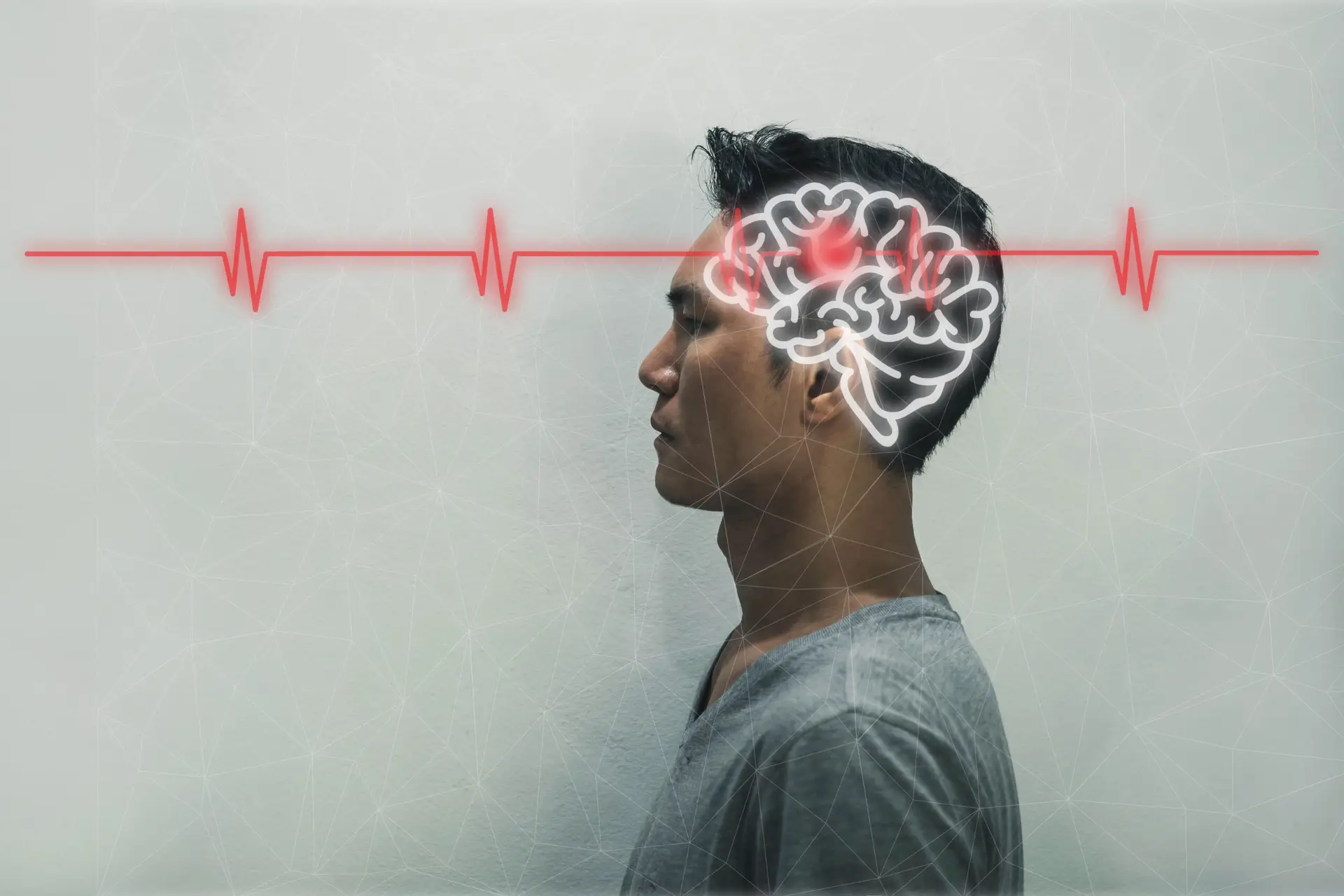Nerve damage, or peripheral neuropathy, affects 2.4% of people worldwide and carries a number of long-term risks, including burns, falls, foot wounds, infection, sepsis, and amputation if left untreated. Early medical intervention may help preserve nerve function or reverse existing damage, reducing nerve damage risks.
Trauma from car accidents, other injuries, infections, certain diseases, and genetic conditions may lead to temporary or permanent nerve damage. If you suspect you are suffering from nerve damage, see a health care provider right away.
What Is Nerve Damage?
Peripheral nerves send messages from the brain and spinal cord to other parts of the body. Muscles and organs depend on this communication to move, function, and perform daily tasks. However, peripheral nerves are fragile and easily damaged. Nerve damage can occur in motor, sensory, and autonomic nerves.
- Motor nerve damage – Motor nerves control muscle movement and aid in walking, talking, and grasping objects. Damage to the motor nerves may result in muscle weakness, cramping, and uncontrolled muscle movements.
- Sensory nerve damage – Sensory nerves transmit information regarding texture, temperature, and pain from the hands and feet to the brain. When these nerves are damaged, patients often experience numbness and tingling in the hands and feet, difficulty telling the difference between heat and cold, and the inability to sense pain or vibrations.
- Autonomic nerve damage – Autonomic nerves regulate breathing, blood pressure, digestion, bladder function, and more. Patients with this type of nerve damage may suffer from excessive sweating, rapid heart rate, and incontinence.
What Are the Symptoms of Nerve Damage?
Peripheral nerve damage can occur in anyone at any age. However, the risk of nerve damage increases as you get older. The type of nerves affected will determine the symptoms you may be experiencing. Some signs of peripheral neuropathy are:
- Muscle weakness
- Lack of coordination and balance
- Tingling, numbness, or pins-and-needles sensations in hands or feet
- Stabbing or burning sensations
- Pain or loss of feeling in the limbs
- Sensitivity to being touched
- Difficulty with fine motor skills such as fastening buttons
- Fluctuations in blood pressure
- Lightheadedness and dizziness
- Gastrointestinal issues
- Urinary incontinence
- Constipation and diarrhea
- Sexual dysfunction
- Thyroid dysregulation
- Excessive sweating or skin dryness
- Blurred vision
- Intolerance to heat or cold
- Sensation that your hands and feet are covered when they are not
- Inability to move your extremities
What Causes Nerve Damage?
Any traumatic injury that stretches, compresses, or severs nerves can result in nerve damage. Motor vehicle accidents, sports injuries, occupational injuries, and slips and falls may cause immediate peripheral nerve damage. In addition to physical trauma, there are several other conditions that may lead to nerve damage decades later:
- Medical conditions such as Type 2 diabetes, Guillain-Barre syndrome, carpal tunnel, chronic inflammatory demyelinating polyneuropathy, and vasculitis
- Viral and bacterial infections, including Lyme disease, shingles, Hepatitis B and C, leprosy, diphtheria, and HIV
- Autoimmune diseases, such as lupus, rheumatoid arthritis, and Sjogren’s syndrome
- Genetic disorders such as Charcot-Marie-Tooth disease
- Surgery
- Repetitive stress injuries
- Narrowing of the arteries
- Hormonal imbalances
- Bone marrow disorders
- Hypothyroidism
- Alcohol use disorder
- Exposure to toxins such as lead and mercury
- Benign or malignant tumors that grow and press on surrounding nerves
- Certain cancer treatments, such as chemotherapy
- Vitamin deficiency
- A family history of neuropathy
What Are the Complications of Nerve Damage?
Without the ability to feel pain or other sensations in the hands and feet, patients with peripheral neuropathy are at increased risk for burns and other skin injuries that can lead to infection, especially wounds on the feet. Neuropathy patients should regularly check their feet for minor injuries and treat them before they become more serious. Untreated infections may become septic, and in rare cases, amputation is the only option for preventing the spread.
Muscle weakness, atrophy, and loss of coordination due to the inability of the brain to receive signals from the limbs increase the risk of falls. Difficulty moving the extremities can also progress to paralysis in severe cases.
Perhaps the most debilitating complication of peripheral nerve damage is pain. Pain signals may be nonexistent or increase in intensity with peripheral neuropathy. Spontaneous pain signals that occur unexpectedly disrupt a patient’s day-to-day routine.
How Is Nerve Damage Diagnosed?
Medical providers conduct physical and neurological exams before providing a diagnosis of nerve damage. Your doctor will probably ask you about your medical history and the symptoms you’re experiencing. Bloodwork and other diagnostic tests such as ultrasounds or MRIs are used to visualize damaged bones and tissue that may be pressing on nerves.
Electromyography is a type of diagnostic testing that measures the muscle’s response to nerve stimulation and can detect nerve damage. Nerve biopsy and genetic testing may reveal the root causes of peripheral neuropathy.
What Is the Treatment for Nerve Damage?
The type of treatment your health care provider suggests will depend on the severity of your symptoms and the cause of any detectable nerve damage. The following are frequently used in the treatment of peripheral neuropathy:
- Medication – Nonsteroidal anti-inflammatory drugs such as ibuprofen, aspirin, and naproxen are used to manage symptoms and decrease pain. For more severe pain, you may be prescribed narcotics or muscle relaxers.
- Physical therapy – Prescribed exercises can improve pain, lead to faster healing, and help with balance and coordination.
- Braces or medical devices – Neck or back braces, canes, walkers, and specialized footwear can help prevent complications from neuropathy.
- Transcutaneous electrical nerve stimulation
- Surgery – Surgical procedures can reconnect cut nerves and relieve pain caused by pinched nerves. In some cases, the surgeon may sever or remove damaged or malfunctioning nerves to prevent pain signals from reaching the brain.
While some cases of nerve damage are temporary, others lead to chronic pain and permanent disability. Prompt treatment can stop or reverse some types of neuropathy. If you’ve been involved in an accident, you should seek medical attention immediately. Some injuries can take days or months to appear.
The cost of medical and surgical interventions for neuropathy, as well as loss of wages or inability to work while you recover, can have economic consequences for you and your family. If your nerve damage was caused by another’s negligent behavior, an experienced personal injury attorney may be able to help you recover compensation.
SOURCES:
- Mayo Clinic- Peripheral Nerve Injuries
- Mayo Clinic- Peripheral Neuropathy
- Cleveland Clinic
- Mayo Clinic- Type 2 Diabetes
- World Health Organization- Guillain Barre syndrome
- National Institute of Neurological Disorders and Stroke
- Mayo Clinic- Lupus
- National Institutes of Health
- John Hopkins
- Mayo Clinic-Vasculitis
- John Hopkins- Charcot-Marie-Tooth disease
- National Institutes of Health
- John Hopkins-Electromyography
- Cleveland Clinic- Transcutaneous Electrical Nerve Stimulation





